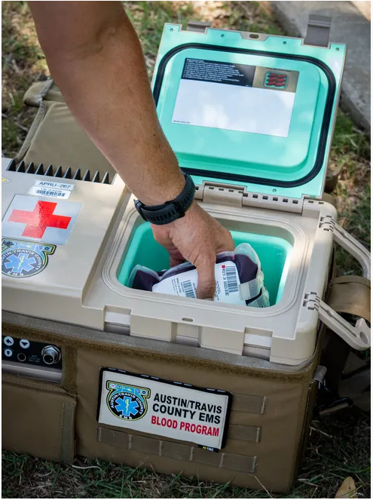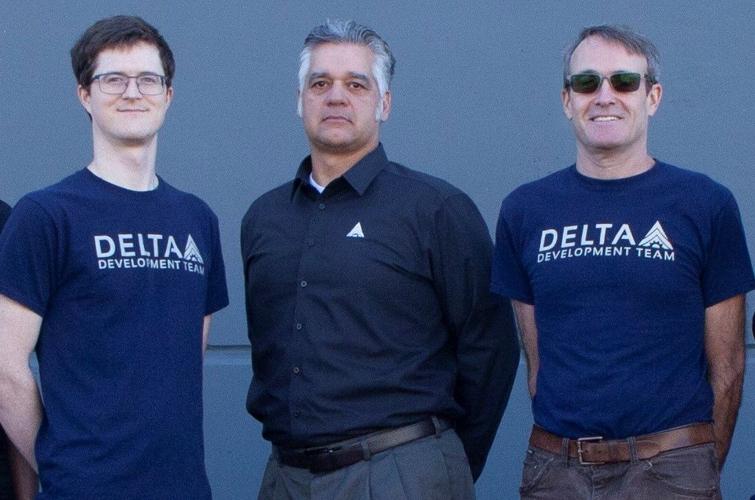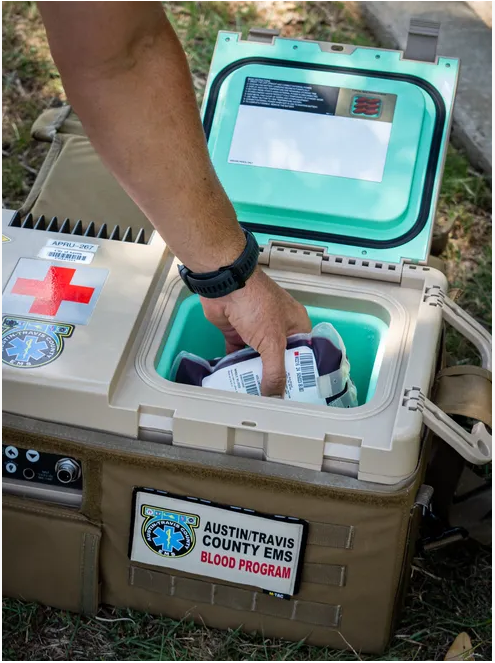Metrics matter in business. They let you know how you are doing. Choosing the appropriate metrics to measure success is often as tough as actually doing the measurements.
Take 64, for example. It’s just a number, but in the context of the Delta Development Team, it is the ultimate metric.
Delta designed and developed a prehospital blood management system. In traumatic accident or injury situations, Delta’s technology enables emergency response personnel to move the blood to the person instead of the person to the blood.

Delta Development Team's short-term target is to produce 4,000 portable blood infusion units annually.
Sixty-four is the number of lives saved in Austin, Texas, in the first six months of using Delta’s solution. There are lots of other business metrics we could talk about, but in the overall scheme of things, 64 lives saved surpasses them all.
Delta Development Team operates out of an office complex on South Research Loop in southeast Tucson in a space that was once home to a church.
I met with Chief Technology Officer Rob Futch and Chief Engineer Bill Barg to learn their story. Both Futch and Barg had many years of experience doing research and development work with the Army. The third member of the founding team is CEO Monti Leija. Leija is a 24-year Special Forces veteran whose role was a combat medic.
Leija knew Futch and Barg through work. Leija also knew from his time in the field that lives could be saved if the medics could infuse whole blood into a patient as soon as possible, preferably right in the field.
A victim suffering internal bleeding and/or blood loss is experiencing low blood pressure, low body temperature and low calcium. Rapid infusion of whole blood solves all three issues. The patients become ambulatory, and the results and outcomes are greatly improved.
Leija, Futch and Barg teamed up to see if they could find a solution. In 2018, they introduced a prototype device using an ammo box as the casing. In 2021, they introduced a multi-unit, multi-day storage that increased the battery life efficiency of the infusion device by a factor of 15 over the nearest competitor. This increased battery life allows blood to be used in more austere locations and hotter (Arizona) environments. This year, they provided emergency medical services teams with a very light 12-pound portable unit.
The military is their No. 1 customer. NATO military and EMS services around the world are major customers. They have provided units to over 500 medical teams in 12 countries. And, they are expanding their presence in the U.S., including Austin. Hundreds more lives beyond the original 64 have been saved in Austin.

The founding members of Delta Development Team, from left, are Chief Technology Officer Rob Futch, CEO Monti Leija and Chief Engineer Bill Barg.
Delta was first to market with their solution. There are competitors out there. Delta employs 21 people, and they are growing. The business receives strong support from Tucson’s small business ecosystem, including assistance in obtaining Small Business Innovation Research grants, funding from The Desert Angels, and funding from UA Venture Capital Fund.
They have lots of customer demand. Through distributors and direct field work from Leija, the company is signing more municipal and private EMS services.
Their top focus is increasing manufacturing capabilities. Their short term target is to produce 4,000 portable blood infusion units annually, which would track them to over $50 million in revenue.
Blood is a valuable commodity with a limited shelf life. Blood banks have stringent rules regarding storage and care for units of blood. Delta addresses the blood bank’s concerns with software, enabling blood banks to monitor and keep track of the blood.
Delta’s portable blood refrigerators are able to transmit back to a blood bank the current status of any unit of blood stored in the devices. This is a subscription service that provides Delta a distinct competitive advantage.
Delta Development Team is representative of the exciting and expanding technology sector in Tucson. Their leadership team is passionate about what they do. They save lives. The team is also passionate about expanding their company and reaching more customers to save more lives.







